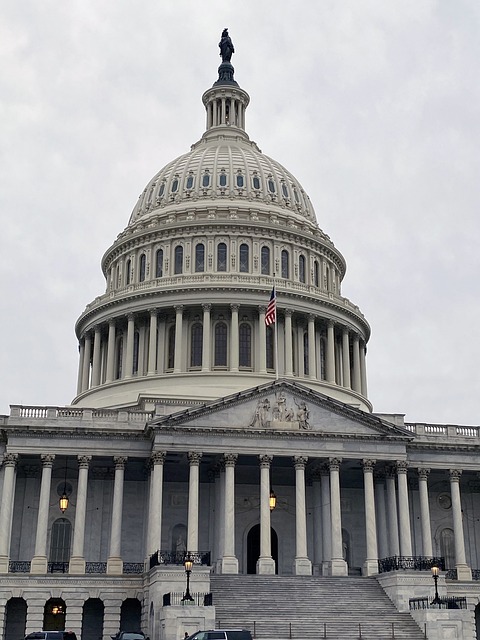JASTA Not as Bad as It Seems
By Lee Whitesell
Published on October 17, 2016

On September 28, 2016, the United States Congress passed the Justice Against Sponsors of Terrorism Act (JASTA) over the veto of President Barack Obama. The bill narrows the scope of foreign sovereign immunity for tortious behavior wherever committed that results in an act of international terrorism in the United States.
JASTA marks the first time that both Houses of Congress mustered the requisite two-thirds vote to overcome President Obama’s veto. The bill was immensely popular because the law’s supporters, like former Senator Bob Graham of Florida, promoted it as offering recourse against the Kingdom of Saudi Arabia for its alleged complicity in the terrorist attacks of September 11, 2001. President Obama and some foreign policy experts argued that the law was dangerously short-sighted as it risks subjecting the U.S. interests to reciprocal immunity-stripping.
Despite media and political focus on Saudi involvement in 9/11 (which U.S. intelligence was unable to corroborate) raising questions of the efficacy of private litigants to do so, JASTA is not limited to any particular nation. It scales back foreign sovereign immunity for any nation whose tortious acts contribute to terrorist activity in the United States. JASTA thus appears at first glance to have wide ranging implications, but there are several constraints internal to the bill itself.
A plaintiff relying on the new law to sue a sovereign actor must identify a cause of action. While JASTA does not create any entirely new causes of action, it refers to and expands, the scope of the Anti-Terrorism Act’s civil remedy, codified at 18 U.S.C. § 2333. JASTA adds a new subsection that creates liability for aiding or abetting “an act of international terrorism committed, planned, or authorized by an organization that was designated as a foreign terrorist organization” under § 219 of the Immigration and Naturalization Act, 8 U.S.C. § 1189. This liability is limited to those who “knowingly provid[e] substantial assistance, or who conspire[] with the” terrorist actors. See 18 USC § 2333(d). This provision is certain to also expand liability for non-sovereign actors. Importantly, this aiding and abetting liability is expressly restricted to the ATA’s civil cause of action; foreclosing arguments that Congress intended to expand liability under other federal statutes—or even state common law.
As a purely domestic, procedural matter, one potentially severe limit on a plaintiff’s ability to bring suit is the ATA’s 10-year statute of limitations. JASTA limits its effect to pending or future suits arising out of injury on or after September 11, 2001, another constraint, as the legislature could have chosen to allow re-opening of old cases. But while the law does expand the ATA’s civil cause of action (described above), JASTA does not modify the limitations period applicable to that provision. It is perhaps ironic that a law whose passage was motivated by a desire to hold the Saudis liable may largely fail to do so.
A recurring criticism of JASTA is that it infringes on the President’s foreign policy executive powers by moving what has traditionally been a matter of diplomacy into the domestic court system. Whatever the merits of this criticism, it is tempered by several provisions in JASTA—provisions that Congress added in response to the President’s concerns. See Statement of Sen. John Cornyn, 162 Cong. Rec. S2845-01. One way in which JASTA respects the traditional foreign relations function of the executive is by incorporating the ATA definition of “international terrorism,” which excludes “acts of war”; defined as “armed conflict between military forces of any origin.” 18 U.S.C. § 2331. The expansion of federal jurisdiction in JASTA therefore will not subject “traditional” sovereign war – making to judicial oversight.
Furthermore, JASTA only slightly relaxes the “territorial tort” exception to sovereign immunity; a familiar concept in international sovereign immunity law. Federal courts have interpreted the U.S. law codifying that exception; the Foreign Sovereign Immunities Act (FSIA), 28 U.S.C. § 1605(a)(5), as requiring the entire tort—that is, the tortious act and the harm—be committed in the United States. See Argentine Republic v. Amerada Hess Shipping Corp., 488 U.S. 428, 440 (1989). Indeed, Saudi defendants successfully invoked the “entire tort” construction of the noncommercial tort exception to the FSIA to avoid liability in a 9/11 case. In re Terrorist Attacks on September 11, 2001, 714 F.3d 109 (2d Cir. 2013). JASTA modifies the FSIA to require only that the harm occur in the United States. The law still requires that a plaintiff’s harm be attributable both to an act of international terrorism occurring in the United States and to a tortious act of a foreign sovereign. 18 U.S.C. 1605B(b).
In this regard, U.S. law is now broader and narrower than international law on foreign sovereign immunity. Article 12 of the United Nations Convention on Jurisdictional Immunities of States and Their Property requires that the tortious conduct “occur[] in whole or in part in the territory of” the forum state, which U.S. law no longer requires. Yet the same article allows liability for omissions. JASTA, on the other hand, requires demonstrating that the sovereign’s tortious act (here the law excludes omissions) was grossly negligent or intentional; mere negligence is not enough. Also, any act must be brought in federal, not state court. JASTA confers exclusive jurisdiction on the federal judiciary.
More fundamentally, JASTA provides a statutory mechanism for the customary diplomatic approach to resolving international grievances. The new law allows the U.S. Attorney General to intervene in a case to request a 180-day stay, which the court may grant if the Secretary of State certifies that the government is engaged in good faith discussions with the sovereign defendant concerning resolution of the claims at issue. Although the Attorney General can request unlimited additional 180-day stays, the Secretary of State must issue new certifications each time. Somewhat incongruously, the law provides that the “court shall grant an extension” on recertification, whereas the initial stay is discretionary. See JASTA § 5(c). This has led some scholars to doubt in toto the efficacy of the stay mechanism.
As it stands, JASTA presents uncertainties both in how it will operate as a practical matter, and in the effect it will have on international relations. In the wake of the veto override, Congress is reportedly reconsidering its decision to pass the law. Now that JASTA is the law of the land, perhaps the President and Congressional leaders (or, more likely, their successors) will be forced to consult on corrective measures.
The Author

Lee Whitesell is a litigation associate with the international law firm Hogan Lovells. He graduated cum laude from the University of Pennsylvania Law School.
Article picture: kiowacountypress via Pixabay roberto_bellasio via Pixabay


